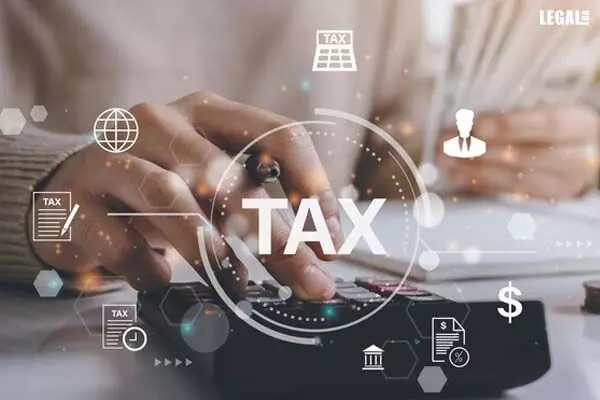- Home
- News
- Articles+
- Aerospace
- Artificial Intelligence
- Agriculture
- Alternate Dispute Resolution
- Arbitration & Mediation
- Banking and Finance
- Bankruptcy
- Book Review
- Bribery & Corruption
- Commercial Litigation
- Competition Law
- Conference Reports
- Consumer Products
- Contract
- Corporate Governance
- Corporate Law
- Covid-19
- Cryptocurrency
- Cybersecurity
- Data Protection
- Defence
- Digital Economy
- E-commerce
- Employment Law
- Energy and Natural Resources
- Entertainment and Sports Law
- Environmental Law
- Environmental, Social, and Governance
- Foreign Direct Investment
- Food and Beverage
- Gaming
- Health Care
- IBC Diaries
- In Focus
- Inclusion & Diversity
- Insurance Law
- Intellectual Property
- International Law
- IP & Tech Era
- Know the Law
- Labour Laws
- Law & Policy and Regulation
- Litigation
- Litigation Funding
- Manufacturing
- Mergers & Acquisitions
- NFTs
- Privacy
- Private Equity
- Project Finance
- Real Estate
- Risk and Compliance
- Student Corner
- Take On Board
- Tax
- Technology Media and Telecom
- Tributes
- Viewpoint
- Zoom In
- Law Firms
- In-House
- Rankings
- E-Magazine
- Legal Era TV
- Events
- Middle East
- Africa
- News
- Articles
- Aerospace
- Artificial Intelligence
- Agriculture
- Alternate Dispute Resolution
- Arbitration & Mediation
- Banking and Finance
- Bankruptcy
- Book Review
- Bribery & Corruption
- Commercial Litigation
- Competition Law
- Conference Reports
- Consumer Products
- Contract
- Corporate Governance
- Corporate Law
- Covid-19
- Cryptocurrency
- Cybersecurity
- Data Protection
- Defence
- Digital Economy
- E-commerce
- Employment Law
- Energy and Natural Resources
- Entertainment and Sports Law
- Environmental Law
- Environmental, Social, and Governance
- Foreign Direct Investment
- Food and Beverage
- Gaming
- Health Care
- IBC Diaries
- In Focus
- Inclusion & Diversity
- Insurance Law
- Intellectual Property
- International Law
- IP & Tech Era
- Know the Law
- Labour Laws
- Law & Policy and Regulation
- Litigation
- Litigation Funding
- Manufacturing
- Mergers & Acquisitions
- NFTs
- Privacy
- Private Equity
- Project Finance
- Real Estate
- Risk and Compliance
- Student Corner
- Take On Board
- Tax
- Technology Media and Telecom
- Tributes
- Viewpoint
- Zoom In
- Law Firms
- In-House
- Rankings
- E-Magazine
- Legal Era TV
- Events
- Middle East
- Africa
Supreme Court: Technological Issues Can't Justify Repeated Harassment Of Assessees; Directs IT Department To Upgrade Software

Supreme Court: Technological Issues Can't Justify Repeated Harassment Of Assessees; Directs IT Department To Upgrade Software
The Supreme Court has ruled on a special leave petition challenging the Delhi High Court's dismissal of a writ petition regarding the imposition of a surcharge on ₹1.57 crores, which demanded ₹2.01 crores for the Assessment Year 2022-2023.
The division bench, comprising Justices Pamidighantam Sri Narasimha and Sandeep Mehta, stated that technological issues cannot be used as a justification to harass an assessee repeatedly. The Court emphasized the need for the Revenue to take immediate action to upgrade its software or implement other necessary measures to prevent such mistakes in the future.
The Court directed the Revenue to withdraw the excess surcharge and communicate this decision within six weeks of receiving the order. It noted that a similar surcharge issue had been successfully challenged for the previous assessment year 2021-2022, leading to a remittance of ₹1.33 crores following the High Court's ruling on March 21, 2023.
In the present proceedings concerning Assessment Year 2022-2023, the Revenue confirmed that the excess surcharge had been rectified and refunded to the petitioner on June 6, 2024. However, the Court highlighted a new demand notice issued on May 28, 2024, for Assessment Year 2023-2024, which involved a surcharge of 37%, amounting to ₹62,85,070. The Revenue attributed this recurring error to the Central Processing Centre (CPC), which is not programmed to eliminate excess calculations when raising demands.
The Court reiterated that the Revenue must address the software issues to prevent future occurrences. Although the current dispute has been resolved, the Revenue was instructed to act promptly regarding the surcharge for the upcoming assessment year, and the Central Board for Direct Taxes was also directed to rectify the software issues, as these problems might not be adequately resolved by the Jurisdictional Assessing Officer.



